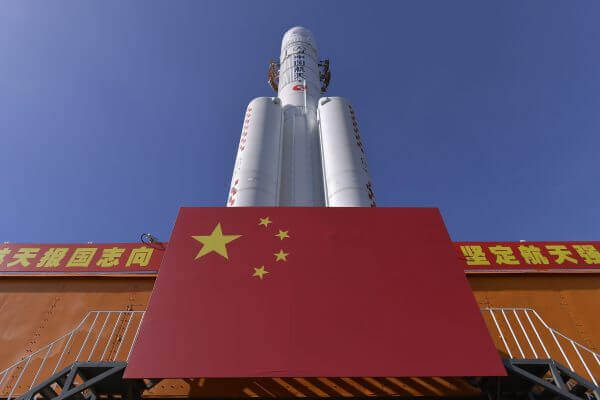China’s State Council Information Office on Friday released a white paper titled “China’s Space Program: A 2021 Perspective.” The paper gives an overview of Beijing’s space achievements since 2016 as well as highlights its space exploration plans for the next five years and international cooperation mechanism.
In terms of international cooperation over the next five years, the government envisions working together with countries such as Italy, Brazil, and Pakistan on satellite engineering and technology. Moreover, it will also conduct dialogues with Russia, the United States (US), and relevant international organisations on outer space governance.
Domestically, Beijing will speed up the formulation of its national space law and establish a legal system to promote law-based governance of its space industry. The white paper also states that China will continue to work on manned moon landing missions, “develop new-generation manned spacecraft, and lay the foundation for future exploration and development of Earth-Moon space.”
...dual-use, so allows lots of civilian applications we know and use, but also global force projection, including coordination of military forces and missile guidance. CNSA won't be talking about this, obviously.
— Andrew Jones (@AJ_FI) June 12, 2021
The paper further outlines that in the next five years, Beijing will “continue to improve the capacity and performance of its space transport system, move faster to upgrade launch vehicles, [...] expand the launch vehicle family, send into space new-generation manned carrier rockets and high-thrust solid-fuel carrier rockets, and speed up the R&D of heavy-lift launch vehicles.”
In addition, it will “strengthen research into key technologies for reusable space transport systems” and will focus on developing “new rocket engines, combined cycle propulsion, and upper stage technologies to improve its capacity to enter and return from space, and make space entry and exit more efficient.”
According to the China National Space Administration, China’s space community has signed around 50 agreements and memorandums of understanding in the sector and cooperated with international partners to implement the United Nations’ 2030 long-term sustainable development agenda.
China’s space exploration plans bring into focus the debate surrounding the US-China rivalry extending beyond Earth, which could see both sides engage in a tough race for dominance in the military, economic, and scientific arenas of space. Washington and Beijing have both laid out extensive plans for exploring the Moon, Mars, and beyond. While China has increased its military potential in space, most notably through its successful anti-satellite test in 2007, the US has also sought to bolster its space capabilities through its Space Force.
In fact, the US has listed China’s space program as a major security concern. In its 2021 Annual Threat Assessment report, the Office of the Director of National Intelligence warns that the People’s Liberation Army is “working to match or exceed” the US’ capabilities in space, especially militarily, by integrating space services into its weapons systems to “erode” the US military’s information advantage.
However, addressing these concerns, the latest version of the paper clarifies that China advocates “the use of outer space for peaceful purposes, and opposes any attempt to turn outer space into a weapon or battlefield or launch an arms race in outer space.” “The space industry is a critical element of the overall national strategy, and China upholds the principle of exploration and utilization of outer space for peaceful purposes,” the paper states.

